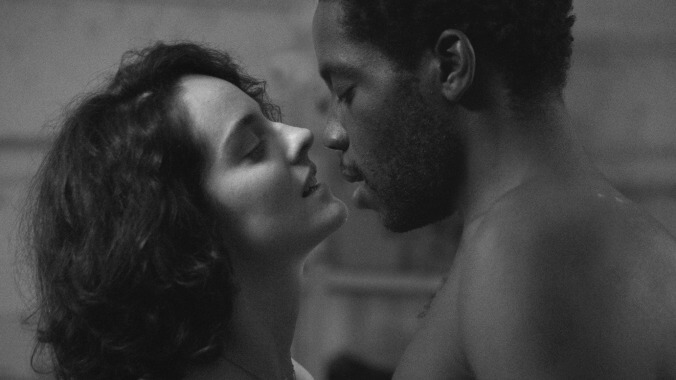In Jacques Audiard’s Paris, 13th District, sex is easy, but love is hard
Lost millennials bed-hop around Paris, seeking deeper connections than their technological devices can provide, in this sharply observed drama

Anyone living in the 13th arrondissement of Paris might wonder what French director Jacques Audiard had in mind when he set his latest film, Paris, 13th District (original French title: Les Olympiades) in such a drab section of the city relatively removed from its iconic museums, monuments, and prodigious rows of Haussmann-style apartment buildings. The arrondissement is known mainly as the location of the Bibliothèque Nationale de France, with its vast and bleak plaza, and a collection of enormous murals that add color and life to an area that sorely lacks both.
The 13th is also the location of Les Olympiades, a grouping of residential towers that are sort of the Parisian equivalent of Manhattan’s Stuyvesant Town. Built in the early ’70s to attract young professionals, it now stands as a sprawling monstrosity that, it turns out, is the perfect location for Audiard’s dreamy, absorbing and minutely observed dissection of youthful, modern-day intimacy. Mostly seen through the eyes (and, very often, the loins) of three bed-hopping Parisians, Paris, 13th District contains copious amounts of uninhibited sex with partners often procured via cell phone or laptop. But the sex exists at a selfish remove, a consequence of the screen-driven interpersonal disconnect baked into our times that Audiard’s primary trio of twenty- and thirtysomethings don’t even realize they suffer from.
It might seem like the height of boomer folly for the 69-year-old Audiard to think he can harangue an audience half his age into rejecting their online predilections and go offline to find a real connection. Yet writing off the movie as a tiresome yada yada about vapid millennials swiping-right in a quixotic search for deep emotional attachment is reductive. Especially because Audiard cares less about the reasons and more about the results he documents with such carefully measured nonchalance that it’s easy to ignore the fleeting moments when the film’s schematic design pops into view. The signifiers of the millennial experience—cell phones, web chats, internet pornography, dating apps—are all there but are merely tools employed, with stealth and style, to suggest that the digital thrum of urban life makes it difficult for two lonely souls to get on the same wavelength.
That’s certainly the case with Émilie and Camille. An educated and brash French-Taiwanese woman wasting time as a call center operator, Émilie (sparkling newcomer Lucie Zhang) has been searching for a roommate when she meets Camille (Makita Samba, terrific), a handsome Black man about to quit his teaching gig to get his doctorate. During what he calls their roommate Q&A, he describes his love life by admitting, “I channel professional frustration into intense sexual activity.” She sums up hers with “fuck first, see later.” The two eventually share the apartment, then a bed. Later he cuts it off by declaring he’s not looking for a girlfriend, then upsets her further by bringing home another woman.








































